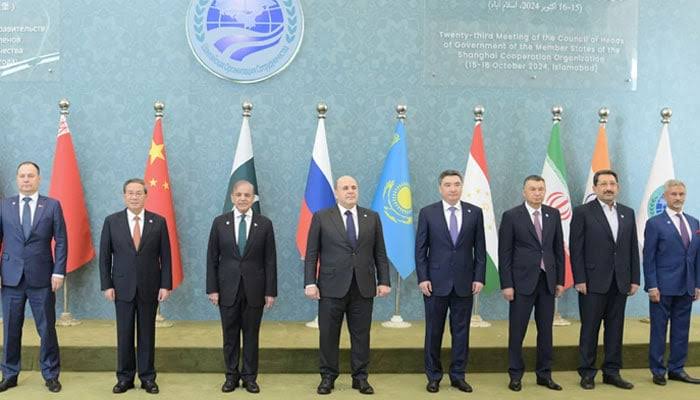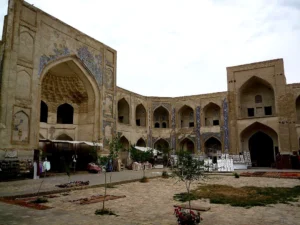From Islamabad to Innovation: How the 2024 SCO Summit Redefines Collaboration in Eurasia

The 23rd meeting of the Shanghai Cooperation Organization (SCO) Council of Heads of Governments 2024, convened from October 15 to 16 in Islamabad, emerged as a crucial platform for member states to address the pressing challenges of our time. This high-level gathering brought together leaders from across Eurasia, underscoring the significance of the SCO in fostering collaboration amid a complex global landscape. With a collective focus on security, economic cooperation, and cultural exchange, the summit sought to chart a sustainable path for the future, reflecting the aspirations of its diverse membership. The backdrop to this meeting is marked by escalating geopolitical tensions, economic uncertainties, and multifaceted security challenges that have reshaped regional and global dynamics. Considering these realities, the SCO leaders convened to reaffirm their commitment to multilateralism, regional stability, and inclusive development. The Islamabad Declaration, the summit’s centerpiece, embodies the member states’ shared vision for enhancing connectivity, deepening economic ties, and ensuring collective security. As the dust settles on the summit, the promises made in Islamabad signal a transformative era for the SCO region. At the heart of the Islamabad Declaration lies a resolute commitment to bolstering regional connectivity through ambitious infrastructure projects. Recognizing the imperative for economic integration, SCO leaders embraced a collaborative approach that echoes the principles of China’s Belt and Road Initiative (BRI). This initiative has already demonstrated its potential in linking economies through a vast network of railways, roads, and ports. During the summit, leaders pledged to advance infrastructure development, prioritizing projects that enhance trade routes, facilitate the seamless movement of goods and people, and connect remote areas to global markets. Pakistan’s emphasis on the China-Pakistan Economic Corridor (CPEC) serves as a compelling model for similar undertakings among other SCO countries. Moreover, the declaration highlighted the urgent need for digital infrastructure enhancement. Member states recognized that bridging the digital divide is vital in today’s interconnected world. The summit underscored the importance of cooperation in telecommunications, cybersecurity, and digital trade. Leaders committed to improving internet access, particularly in underserved regions, ensuring that the benefits of connectivity are equitably distributed. These measures aim to foster e-commerce, empowering small and medium enterprises (SMEs) to participate effectively in the global marketplace.
Security cooperation emerged as another critical theme during the summit. Faced with an array of security challenges, including terrorism, separatism, extremism, and cyber threats, SCO leaders emphasized the necessity of deepening collaboration to safeguard regional peace and stability. The Regional Anti-Terrorist Structure (RATS), a cornerstone of the SCO’s security architecture, will continue to play a pivotal role in coordinating counter-terrorism efforts. Leaders reaffirmed their commitment to combatting the “three evils”—terrorism, separatism, and extremism—while also addressing the growing threats posed by cybercrime and online radicalization. They called for enhanced intelligence-sharing, joint exercises, and coordinated responses to transnational security challenges. In line with the broader security agenda, the Islamabad Declaration also underscored the urgent need to enhance cooperation in the fight against drug trafficking. The SCO region, particularly Central Asia, has long served as a critical transit route for narcotics smuggling. Leaders agreed to fortify border security and law enforcement cooperation to combat this menace, which poses a significant threat to regional stability. Economically, the summit reinforced the commitment to boosting intra-SCO trade and investment. The declaration emphasized the importance of creating a conducive business environment by simplifying trade procedures, reducing tariffs, and promoting cross-border investments. Special attention was directed towards cooperation in energy, agriculture, and manufacturing—sectors deemed essential for sustaining long-term growth in the region. The leaders pledged to support initiatives aimed at diversifying their economies and reducing dependence on external markets, thereby enhancing the region’s economic resilience. The commitments forged during the SCO Summit 2024 set a promising stage for a transformative future within the region. By prioritizing both physical and digital infrastructure development, the SCO is positioning itself as a pivotal player in the global economy, with the potential to evolve into a central hub for trade and investment. However, the successful realization of this vision relies heavily on the member states’ ability to collaborate effectively and implement the ambitious projects outlined in the declaration.
A particularly promising avenue lies in the potential for greater trade integration within the SCO bloc. The commitment to simplifying trade procedures and reducing tariffs is expected to stimulate economic activity, fostering increased cross-border trade and investment. Furthermore, the development of new trade corridors linked to the BRI will unlock fresh markets and generate opportunities for businesses across the region. For Pakistan, the success of CPEC stands as a testament to the transformative impact of such initiatives, and analogous projects in other member states could yield similarly significant benefits. Energy cooperation emerges as another key area ripe for future collaboration. The SCO region is endowed with some of the world’s largest reserves of oil, gas, and other vital natural resources. Leaders at the summit emphasized the importance of harnessing these resources for mutual benefit. By working collaboratively to develop shared energy infrastructure, SCO countries can mitigate energy shortages, stabilize prices, and bolster energy security. Additionally, the shift toward renewable energy, as emphasized in the declaration, presents a unique opportunity for the region to assume a leadership role in the global transition to sustainable energy sources. Beyond economic cooperation, the Islamabad Declaration highlighted the significance of enhancing people-to-people connectivity, with cultural exchanges and educational initiatives at the forefront. The SCO’s commitment to promoting cultural diplomacy is viewed as a vital component in nurturing mutual understanding and trust among member states. Initiatives such as student exchanges, joint research programs, and cultural festivals will serve to strengthen the bonds between the peoples of the SCO region, laying a solid foundation for long-term collaboration. In the security domain, the Islamabad Declaration provided a comprehensive strategy for addressing evolving threats confronting the region. The commitment to enhancing intelligence-sharing, conducting joint counter-terrorism exercises, and combating cybercrime will be pivotal in safeguarding regional stability. However, the success of these initiatives hinges on the ability of SCO member states to transcend political differences and collaborate in a spirit of mutual trust.
As the world becomes increasingly interconnected, the SCO’s role in shaping the future of Eurasia and beyond cannot be overstated. The commitments articulated during the 2024 summit reflect a shared vision of a more prosperous, secure, and interconnected region, yet they also present significant challenges. The success of the initiatives outlined in the Islamabad Declaration will necessitate sustained political will, robust institutional frameworks, and active engagement from all stakeholders. The SCO Summit 2024 has laid the groundwork for a new era of cooperation and growth, positioning member states to collectively tackle the challenges of the 21st century. With the promises made in Islamabad, the SCO stands poised to emerge as a leading force in global governance, championing peace, stability, and prosperity for its member states and the wider world. As these commitments begin to materialize, the future of the SCO region appears brighter than ever, brimming with potential for collaborative growth and mutual advancement. The Islamabad Summit has set a decisive course for the future of the SCO, aligning the aspirations of member states with the realities of a changing global landscape. By prioritizing connectivity, economic cooperation, and security, the SCO is not only strengthening its relevance but also enhancing the prospects for regional stability and prosperity. The journey ahead will undoubtedly be challenging, but the commitments made during this landmark summit signal a collective determination to forge a path towards a more interconnected and secure Eurasia. As we look forward to the outcomes of these promises, one thing remains clear: the SCO is poised to play a pivotal role in shaping the future of the region and beyond.

